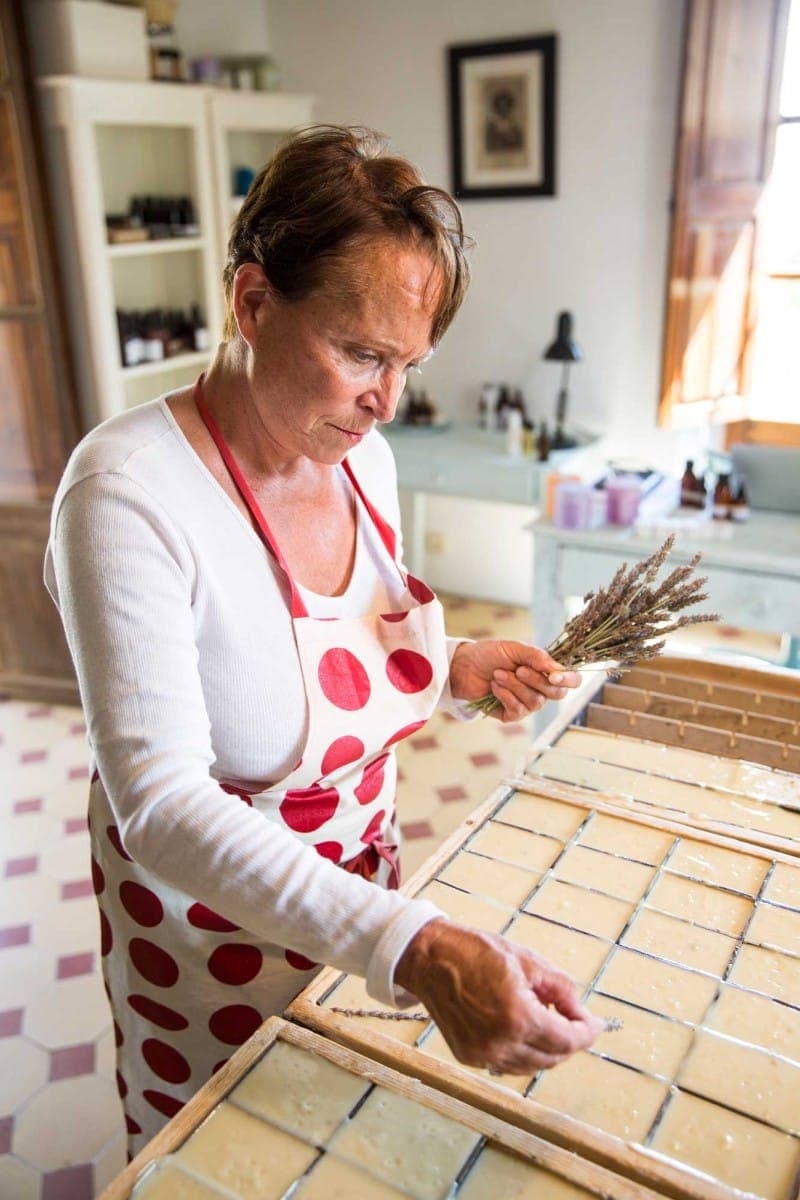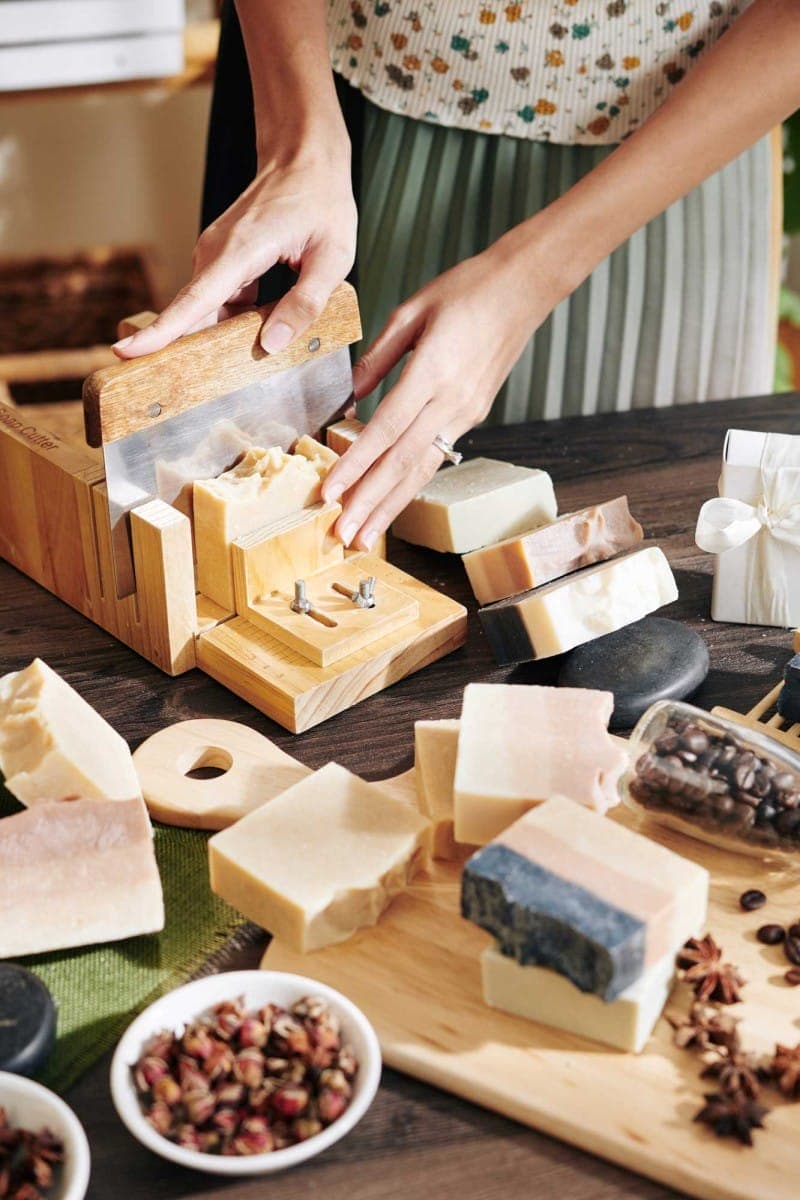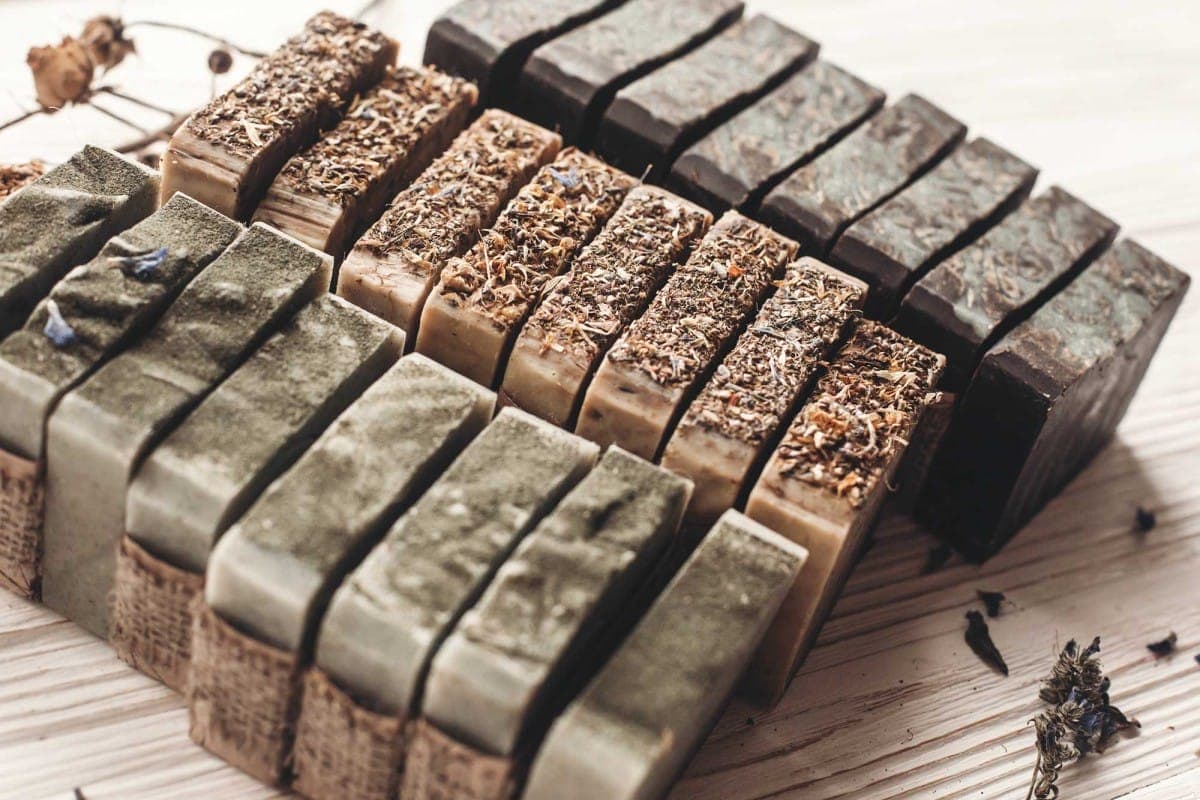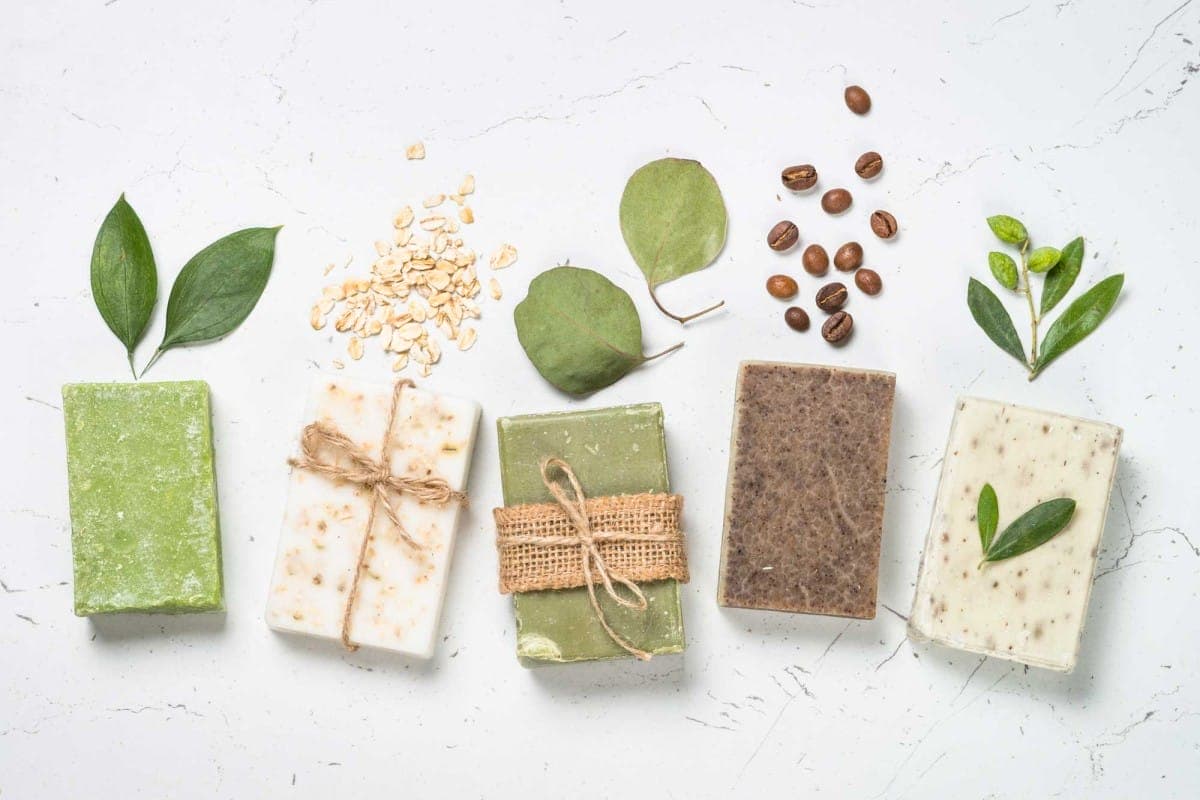Beauty, Skincare, Trends & Opinions
The Rise of Artisanal Soap: Why Handmade, Natural Bars Are Taking Over the Market
There’s something deeply satisfying about lathering up with a bar of handcrafted soap. The texture, the scent, and the knowledge that each bar is made with care make the experience feel personal. Mass-produced soaps have dominated store shelves for decades, but a shift is underway. Artisanal soap companies are on the rise, appealing to those who seek high-quality, ethically sourced, and skin-nourishing alternatives.
Small-scale soap makers are bringing back traditional soap crafting techniques, using natural ingredients and time-tested processes. Consumers are responding enthusiastically, drawn to the promise of sustainable, chemical-free options. According to a report by Grand View Research, the global organic soap market was valued at $222.3 million in 2020 and is expected to grow at a compound annual rate of 8.1% through 2028. Source. Clearly, demand is growing for something beyond what supermarket brands offer.
According to a report by Grand View Research, the global organic soap market was valued at $222.3 million in 2020 and is expected to grow at a compound annual rate of 8.1% through 2028.
What Sets Artisanal Soap Apart?
Handmade soaps differ from commercial options in many ways. Mass-produced soaps often contain synthetic detergents, parabens, and sulfates, which can strip the skin of its natural moisture. In contrast, handcrafted soaps rely on high-quality oils, butters, and other beneficial ingredients to cleanse without causing dryness or irritation.



Additionally, artisanal soaps are often made in small batches, allowing makers to carefully control quality and experiment with unique ingredient combinations. This attention to detail is one of the reasons these soaps command a loyal following.
Single Mill vs. Triple Mill: Understanding the Process
Soap-making methods impact the final product’s texture, longevity, and overall experience. A common distinction in the industry is between single-milled and triple-milled soap.
Single-milled soap is made using a cold or hot process and retains its natural glycerin, which provides excellent moisture but may lead to a softer bar that dissolves faster. This method is favored by many artisanal soap makers because it preserves the natural properties of oils and butters.
Triple-milled soap, on the other hand, is repeatedly pressed to remove excess water and air. The result is a harder, longer-lasting bar with a consistent texture. While many luxury brands use this technique, it can also strip some of the natural glycerin, making the soap less hydrating. The decision between single-milled and triple-milled often comes down to preference: do you prioritize moisture retention, or do you want a bar that lasts longer?
Goat Milk vs. Tallow: Choosing the Right Base
Two of the most popular bases for artisanal soaps are goat milk and tallow, each offering distinct benefits. Goat milk soap has gained widespread recognition for its gentle, nourishing properties. It’s packed with vitamins like A and D and contains lactic acid, which acts as a natural exfoliant. People with sensitive or dry skin often turn to goat milk soap for its soothing effects.
Tallow-based soap, made from rendered animal fat, has been used for centuries. It creates a firm, creamy lather and provides excellent conditioning properties. While some consumers avoid animal-derived ingredients, others appreciate tallow’s traditional roots and skin-loving benefits. Ethically sourced tallow can be a sustainable option, reducing waste by repurposing fat from responsibly raised animals.

Essential Oils, Clays, and Botanicals: Enhancing the Experience
Artisanal soaps often feature a range of additives that enhance their benefits. Essential oils not only provide natural fragrance but also offer therapeutic properties. Lavender is known for its calming effects, while tea tree oil boasts antibacterial qualities.
Clays like kaolin and bentonite help with oil absorption and detoxification, making them ideal for oily or acne-prone skin. Botanicals such as chamomile, calendula, and rosemary bring their own soothing and healing properties to the mix.
By selecting high-quality, natural additives, soap makers create products that do more than cleanse—they nurture the skin.
Why Consumers Are Making the Switch
The rise of artisanal soap is part of a broader movement toward natural and sustainable personal care. Many consumers are becoming more conscious of what they put on their skin and are looking for transparency in ingredient sourcing.
Additionally, supporting small businesses and independent makers has become a priority for many. Purchasing from an artisan means investing in a product that has been carefully crafted, rather than mass-produced in a factory. The personal touch is part of the appeal—many soap makers share their stories, sourcing practices, and ingredient philosophies openly, fostering trust and loyalty.
Common Questions About Artisanal Soaps
Are handmade soaps better for sensitive skin?
Yes, many artisanal soaps are formulated without harsh detergents, making them a great choice for sensitive skin types. Always check the ingredient list to ensure no potential allergens are present.
Why do some handmade soaps dissolve quickly?
Soaps with a high glycerin content or softer oils tend to dissolve faster, especially if they sit in water. Using a draining soap dish can help extend their lifespan.
Is all-natural soap the same as organic soap?
No, natural soaps contain ingredients derived from nature, but organic soaps must meet specific certification standards for ingredient sourcing and processing.
Can artisanal soaps help with skin conditions like eczema?
Many users find that soaps made with goat milk, oatmeal, or shea butter help soothe eczema-prone skin. However, individual reactions may vary.
The shift toward artisanal soap is more than a passing trend—it’s a movement toward quality, sustainability, and conscious consumerism. With so many options available, there’s a perfect bar for everyone.

Leading Artisanal Soap Brands and Their Standout Products
Several brands have emerged at the forefront of this artisanal soap renaissance, each offering unique products that cater to diverse consumer needs. Let’s delve into four notable companies and their standout offerings.
Bela Pure Natural Soaps
Bela Pure Natural Soaps is renowned for its natural, triple-milled soaps crafted in Australia. Their commitment to quality is evident in their use of organic shea butter and the absence of parabens and tallow. A standout product is the Extra Creamy Goats Milk Soap, which offers a rich, moisturizing experience suitable for all skin types. Customers appreciate its long-lasting nature and creamy lather.
Favorite Bela Pure Natural Soaps
- Extra Creamy Goats Milk Soap
This 3.3 oz bar is enriched with organic shea butter and triple-milled for a luxurious, long-lasting lather. It’s designed to provide deep hydration, making it ideal for those with dry or sensitive skin. The absence of parabens and tallow ensures a natural cleansing experience. - French Pear Soap
Infused with the sweet and crisp aroma of ripe French pears, this soap offers a refreshing and invigorating cleanse. The triple-milled process ensures a rich lather, while organic shea butter leaves the skin feeling soft and nourished. - Goats Milk & Sea Salt Soap
Combining the moisturizing benefits of goat’s milk with the purifying properties of sea salt, this bar provides a gentle exfoliation. It’s perfect for those seeking a spa-like experience at home.
Allies Naturals
Based in New Haven, Connecticut, Allies Naturals specializes in functional cold-processed goat milk soaps, 100% soy candles with lead-free cotton wicks, and four-ingredient body butters. Their handmade artisan items are designed to nourish the body, mind, and soul. The use of goat milk in their soaps provides moisturizing benefits, while their soy candles offer a clean-burning experience.
Top Selling Allies Naturals Soaps
- Smooth Facial Soap – Activated Charcoal & Tea Tree Oil
Formulated with activated charcoal and tea tree oil, this facial bar provides deep cleansing, helping to remove impurities and excess oil. It’s particularly beneficial for those with acne-prone or oily skin. The inclusion of goat milk ensures the soap remains gentle and moisturizing. - Lavender Body Soap
Infused with natural lavender essential oil, this body soap offers a calming and aromatic bathing experience. Lavender is known for its soothing properties, making this soap ideal for relaxation and stress relief. The goat milk base provides a creamy lather that hydrates and nourishes the skin. - Bare Body Soap
Designed for those who prefer a fragrance-free option, the Bare Body Soap is made without any added scents or colors. It’s suitable for all age groups and skin types, including sensitive skin. The simplicity of its ingredients ensures a gentle and pure cleansing experience.
LEH Soap Company
LEH Soap Company is renowned for its handcrafted products made in small batches using natural ingredients. Their offerings include a variety of soaps, body butters, and lotions. Popular products feature unique scents like Beach Days and Spicy Bay Rum. The company also provides bath salts, facial care items, and hair care products, catering to a wide range of personal care needs.
Consumer Favorites from LEH Soap Company
- Beach Days Soap
Capturing the essence of a day by the sea, this soap features a crisp, clean blend of ocean and rain fragrance oils. It’s a customer favorite for its refreshing scent and gentle cleansing properties. - Spicy Bay Rum Soap
Infused with a warm and spicy bay rum fragrance, this soap offers a rich lather that cleanses without stripping the skin’s natural oils. It’s a popular choice for those who appreciate classic, masculine scents. - Almond Crumb Body Butter
This thick and luxurious body butter is crafted with aloe, sunflower oil, and a blend of shea, cacao, and mango butters. The delightful almond scent adds to its appeal, making it a best-seller among customers.
Dr. Woods Naturals
Dr. Woods Naturals is a family-owned business committed to producing high-quality health and beauty products. They offer a range of liquid black soaps, liquid castile soaps with organic shea butter, and bar soaps. Their products are vegan, cruelty-free, and free from phthalates, parabens, sulfates, and petroleum derivatives. Notable offerings include Raw Black Soap with Fair Trade Shea Butter and Peppermint Castile Soap. The company emphasizes environmental sustainability and the use of natural ingredients.
Some of the Best Dr. Woods Naturals Soaps
- Raw Black Soap with Fair Trade Shea Butter
Made from plantain skins and enriched with shea butter, this soap offers gentle exfoliation and deep cleansing. It’s suitable for all skin types and is celebrated for its natural healing properties. - Peppermint Castile Soap with Organic Shea Butter
This invigorating soap combines the refreshing scent of peppermint with the moisturizing benefits of shea butter. It’s a versatile cleanser that can be used for both skin and hair. - Almond Castile Soap with Organic Shea Butter
Infused with the sweet scent of almonds, this castile soap provides a gentle yet effective cleanse. The addition of shea butter ensures that the skin remains hydrated and soft after use.
Why Handmade Soaps Are Changing the Way We Care for Our Skin
The growing success of artisanal soap companies reflects a larger shift in consumer priorities—one that values transparency, sustainability, and overall well-being. More than ever, people are scrutinizing the ingredients in their personal care products, choosing handcrafted options that nourish the skin while minimizing exposure to synthetic additives. This shift isn’t just about better skincare; it’s about making mindful choices that align with environmental responsibility, ethical sourcing, and support for small businesses.
Brands like Bela Pure Natural Soaps, Allies Naturals, LEH Soap Company, and Dr. Woods Naturals exemplify this movement, offering high-quality alternatives to conventional soaps. Each company brings a unique approach, from traditional triple-milled bars to cold-processed goat milk soaps, proving that artisanal craftsmanship can deliver superior results without compromising on values. Their commitment to natural ingredients, small-batch production, and thoughtful formulations has not only set them apart but also fostered a loyal and growing customer base.
Choosing handmade soap is more than a simple swap—it’s an investment in better skincare, a cleaner planet, and a thriving community of independent makers. Whether driven by a desire for healthier skin, eco-conscious living, or a love of handcrafted goods, consumers are embracing these soaps as more than just a trend. They represent a movement toward intentional living, where every purchase reflects a commitment to quality, sustainability, and care. And as demand continues to rise, so too does the promise of a future where personal care is as thoughtful as it is effective.




